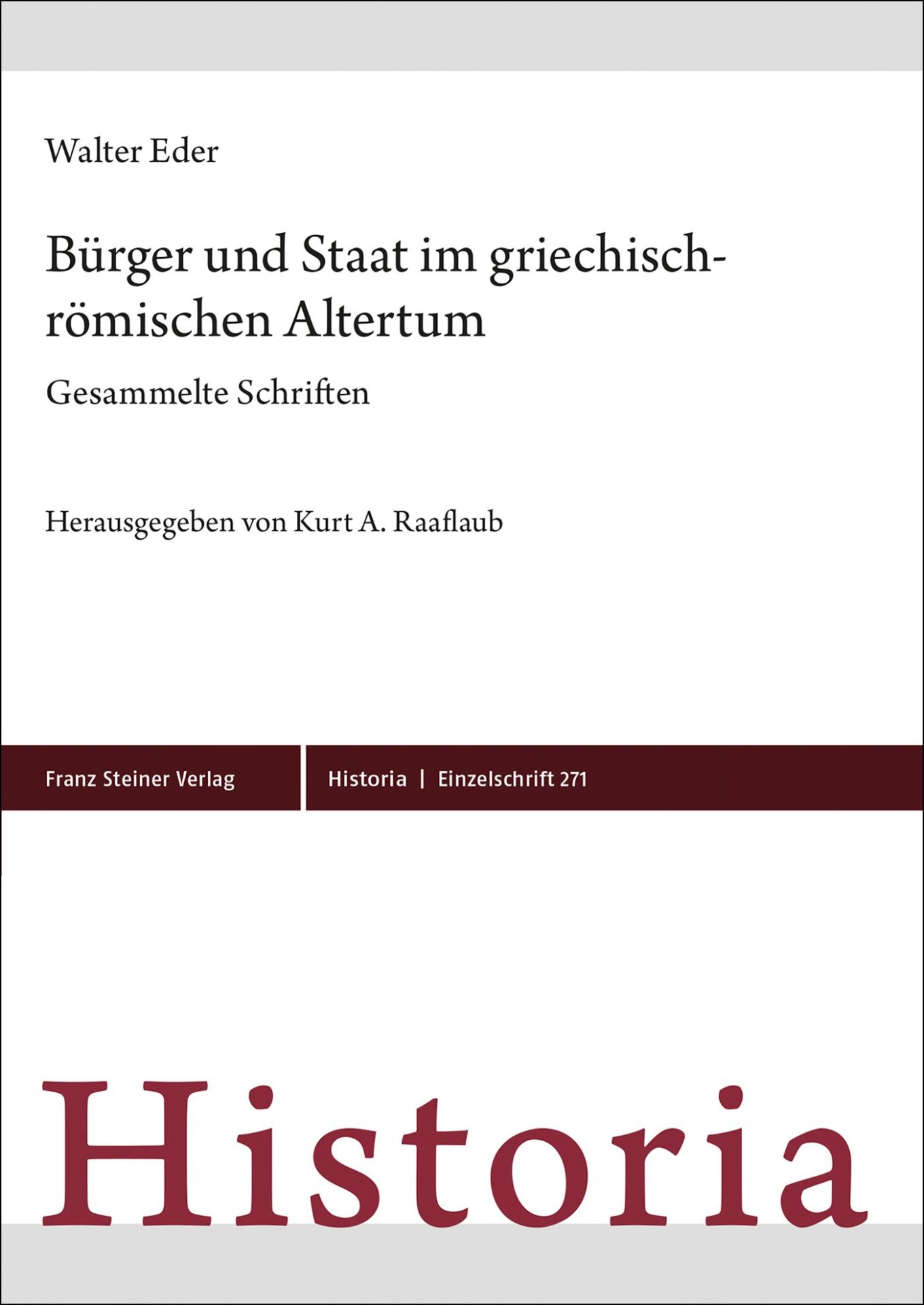Walter Eder in scholarly conversation
About the book:
Walter Eder provides a new overall picture of archaic and classical Greek and Roman Republican history. The development of the state and society, which he examines from an often unconventional perspective, is central. He emphasizes the role of the aristocracy, which always provided the decisive impetus, readapted itself to maintain power, allowed broader classes to have a say and thus ultimately disempowered itself. For Greece, Eder’s main interest lies in the integrative role of tyranny and the reassessment of the 4th century, in which democracy developed into a stable, independent constitutional form after the crisis of 411-404 BC. Convinced of the importance of Rome’s early history for all later developments, Eder reinterprets the role of the last kings, the popular tribunate and the struggles between the estates. He analyzes the consequences of the republican constitution, which was based on compromises and improvisations, for the crisis and fall of the republic and finds Augustus’ success rooted in his policies, which were deeply rooted in republican traditions and made the principate an independent link between republic and monarchy.


